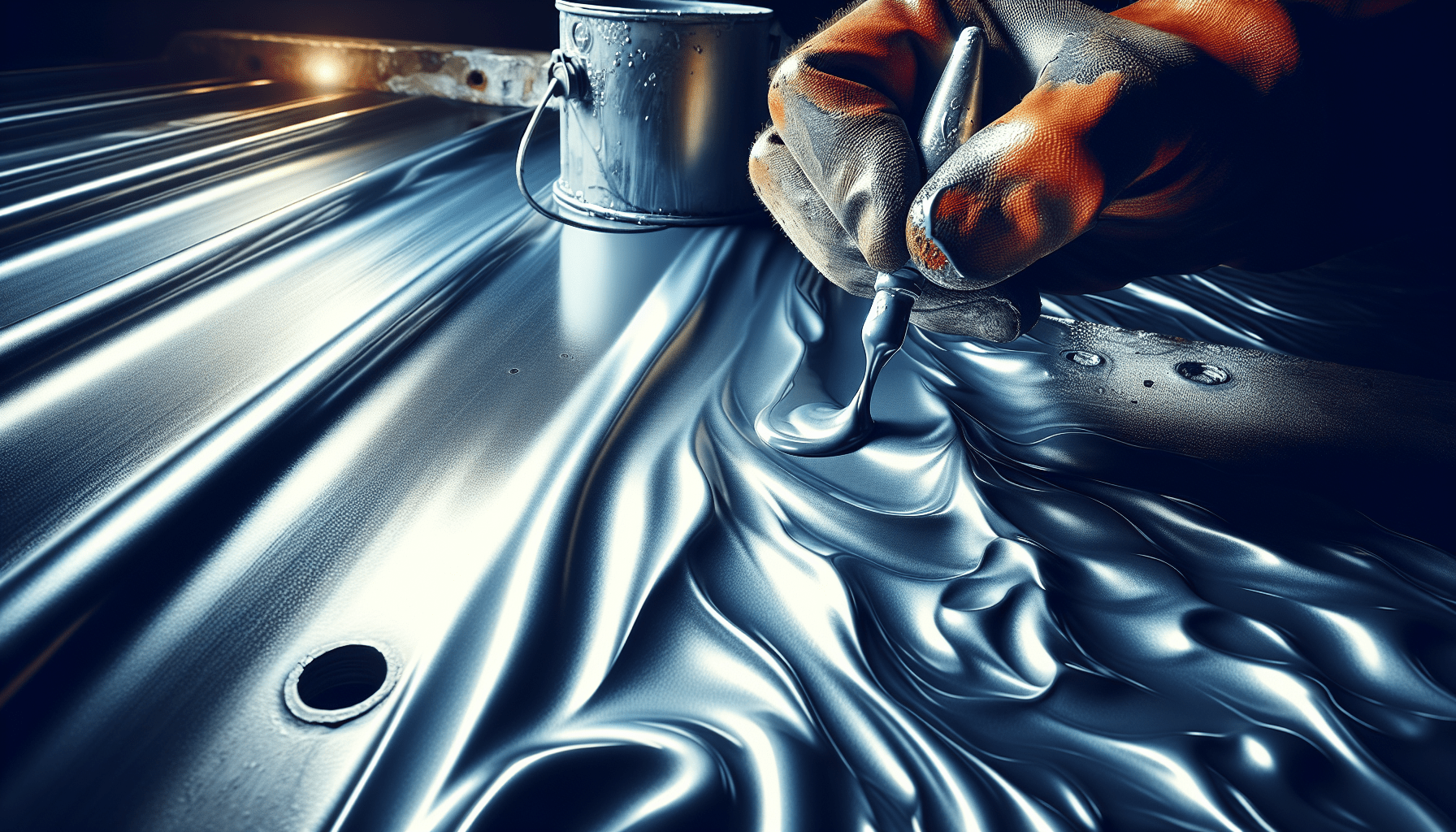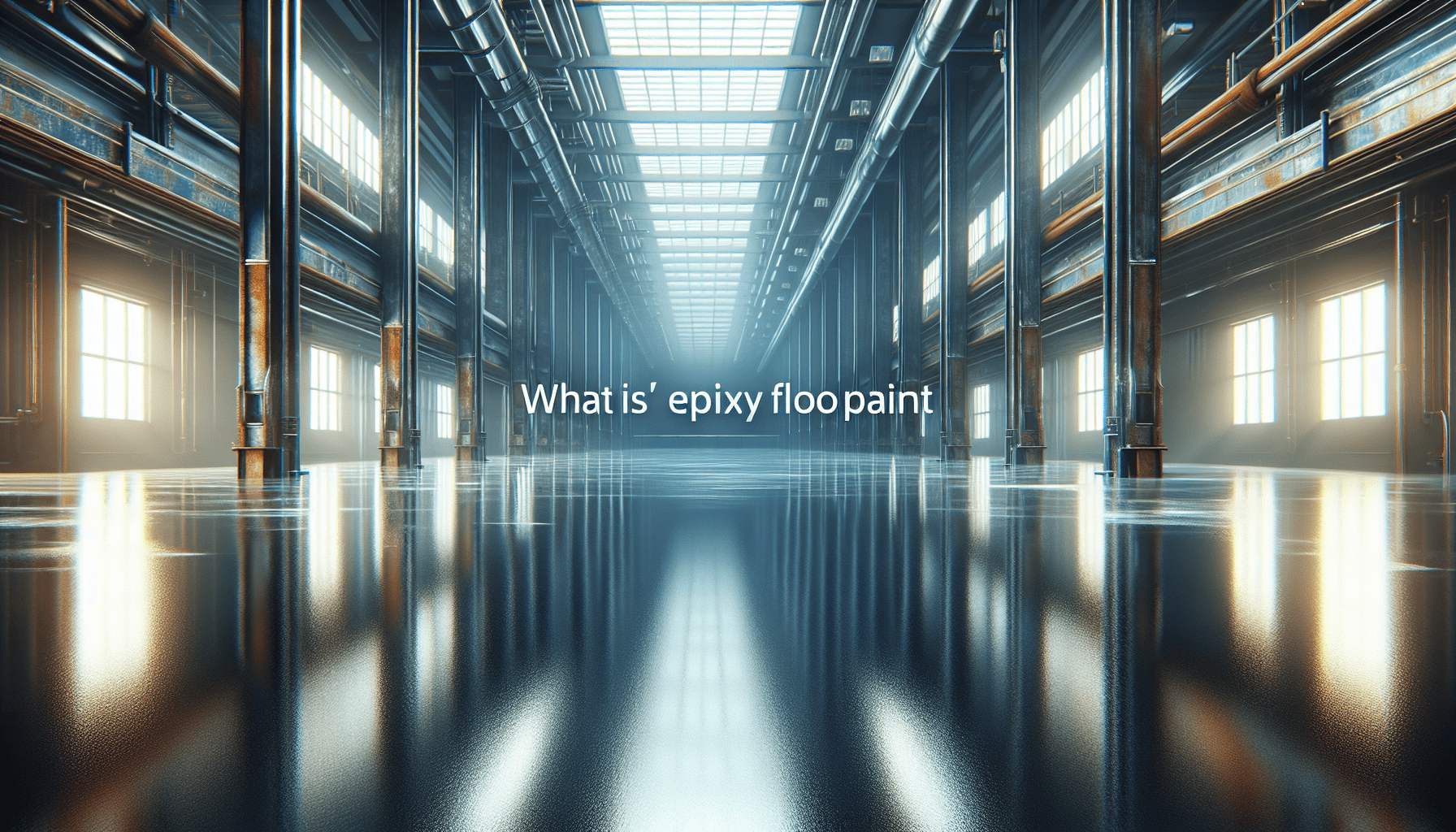Epoxy paint is widely known for its durability and versatility, making it a popular choice for various applications. However, a common question among many individuals is whether epoxy paint is truly waterproof. In this article, we will explore this question and provide you with a comprehensive understanding of the waterproof qualities of epoxy paint.
What is Epoxy Paint?
Epoxy paint is a type of paint that is formulated with epoxy resins, which are a type of thermosetting polymer. It consists of two parts – a base material and a hardener. When these two components are mixed together, a chemical reaction occurs, resulting in a tough, durable, and resilient coating. Epoxy paint is known for its excellent adhesion, high chemical resistance, and mechanical strength. It is commonly used in various applications, including industrial coatings, automotive finishes, and household applications.
Composition of Epoxy Paint
Epoxy paint is typically composed of epoxy resins, a hardener, pigments, and various additives. The epoxy resins provide the paint with its strong bonding properties and durability. The hardener is responsible for triggering the chemical reaction that causes the epoxy to cure and harden. Pigments are added to give the paint its desired color and opacity. Additives, such as fillers or leveling agents, may be incorporated to improve the application properties and performance of the paint.
Common Uses of Epoxy Paint
Epoxy paint is commonly used in a wide range of applications due to its unique properties. One of its primary uses is as a protective coating for concrete floors. Epoxy paint creates a seamless, durable, and chemical-resistant surface that is ideal for industrial facilities, garages, and warehouses. It is also used as a primer or topcoat for metal surfaces, providing corrosion resistance and enhanced aesthetics. In addition, epoxy paint is utilized in marine applications, such as boat hulls and decks, due to its resistance to water and chemicals.

Understanding Waterproofing
Waterproofing is the process of making a structure or material resistant to the penetration of water. It is essential in various industries, including construction, where the prevention of water damage is crucial. Waterproofing is typically achieved through the application of specialized materials or coatings that create a barrier against water ingress. There are different types of waterproofing methods available, each suitable for specific applications and environments.
Definition of Waterproofing
Waterproofing involves the application of materials or treatments to prevent the entry of water into a structure or material. The goal of waterproofing is to create a barrier that resists water penetration and protects the underlying substrate from moisture damage. Waterproofing can be applied to various surfaces such as roofs, walls, basements, and concrete structures.
Types of Waterproofing
There are several types of waterproofing methods commonly used in different applications:
-
Liquid Waterproofing: This method involves applying a liquid membrane or coating onto the surface to create a protective barrier. Liquid waterproofing materials can be sprayed, rolled, or brushed onto the surface, providing a seamless and flexible coating.
-
Cementitious Waterproofing: Cementitious waterproofing relies on the application of cement-based coatings or additives to create a watertight barrier. These materials typically contain a blend of cement, sand, and other additives to enhance their waterproofing properties.
-
Bituminous Membrane Waterproofing: Bituminous membranes are commonly used in roofing applications. These membranes consist of layers of asphalt or modified bitumen that are heated and applied to form a waterproofing layer.
-
Bentonite Waterproofing: Bentonite waterproofing involves the use of sodium bentonite, a natural clay material, to create a waterproofing barrier. When hydrated, bentonite swells, forming a seal that prevents water infiltration.

Is Epoxy Paint Waterproof?
Epoxy paint is known for its durability and resistance to various chemicals, but is it waterproof? While epoxy paint provides some level of water resistance, it is not inherently waterproof. The ability of epoxy paint to resist water penetration depends on several factors, including its properties, application technique, surface preparation, and environmental conditions.
Properties of Epoxy Paint
Epoxy paint exhibits excellent adhesion, chemical resistance, and mechanical strength. Its high level of cross-linking and hardness makes it resistant to impacts, abrasion, and chemical spills. However, the epoxy paint film is not completely impermeable to water and can absorb moisture over time if exposed to prolonged or continuous water exposure.
Water Resistance of Epoxy Paint
Epoxy paint demonstrates good water resistance and can withstand intermittent contact with water or occasional exposure to moisture. It forms a solid, non-porous film that can protect the underlying substrate from water damage. However, it is important to note that epoxy paint should not be relied upon as the sole waterproofing solution for areas prone to constant water exposure or immersion.
Factors Affecting Waterproofing Ability
Several factors can influence the waterproofing ability of epoxy paint. These include surface preparation, application technique, quality of epoxy paint, and environmental factors.
Surface Preparation
Proper surface preparation is vital to ensure the adhesion and effectiveness of epoxy paint as a waterproofing solution. The surface should be clean, dry, and free from any contaminants, such as dirt, grease, or previous coatings. Any cracks, holes, or imperfections should be repaired before applying the epoxy paint to prevent water infiltration.
Application Technique
The application technique used for epoxy paint can impact its waterproofing ability. It is important to apply the paint evenly and at the recommended thickness to ensure a sufficient barrier against water penetration. Proper mixing of the epoxy resin and hardener is crucial for achieving the desired properties and performance of the paint.
Quality of Epoxy Paint
The quality of the epoxy paint used can also affect its waterproofing ability. It is essential to choose a high-quality epoxy paint that has been specifically formulated for the intended application. Inferior or low-quality paints may not provide the same level of water resistance and durability.
Environmental Factors
Environmental conditions, such as temperature, humidity, and exposure to sunlight, can impact the performance of epoxy paint as a waterproofing solution. Extreme temperature variations or prolonged UV exposure can degrade the paint’s properties and compromise its water resistance over time.
Other Applications of Epoxy Paint
Apart from its potential as a waterproofing solution, epoxy paint has several other applications due to its unique properties:
Floor Coating
Epoxy paint is widely used as a floor coating in industrial, commercial, and residential settings. It provides a durable, seamless, and easy-to-clean surface that can withstand heavy traffic, chemicals, and abrasion. Epoxy floor coatings are commonly used in warehouses, garages, showrooms, and hospitals.
Epoxy Resin for Surfaces
Epoxy paint is also used as a protective coating for various surfaces, including wood, metal, and concrete. It enhances the appearance of the surface while providing resistance to moisture, chemicals, and wear. Epoxy resin coatings can be used for countertops, tabletops, sculptures, and artwork.
Epoxy-based Adhesives
Epoxy paint can be formulated into adhesives that offer high strength and excellent bonding properties. These adhesives are commonly used in construction, automotive, and aerospace industries, where the bonding of different materials is required.
Pros and Cons of Epoxy Paint
Before considering epoxy paint as a waterproofing solution, it is essential to evaluate its advantages and disadvantages:
Advantages
- Excellent adhesion to various surfaces
- Provides a durable and hardwearing finish
- Resistant to chemicals, impact, and abrasion
- Easy to clean and maintain
- Can be applied to both horizontal and vertical surfaces
Disadvantages
- Not completely waterproof, may absorb moisture over time
- Requires proper surface preparation and application technique for optimal performance
- Limited resistance to UV radiation, may degrade when exposed to sunlight
- Can be expensive compared to other types of paint
Tips for Proper Waterproofing with Epoxy Paint
To ensure effective waterproofing with epoxy paint, the following tips should be considered:
Surface Preparation Tips
- Clean the surface thoroughly to remove any dirt, grease, or contaminants.
- Repair any cracks or imperfections in the surface before applying the epoxy paint.
- Ensure the surface is dry and free from moisture before proceeding with the application.
Application Tips
- Follow the manufacturer’s instructions for mixing the epoxy paint and hardener in the correct ratio.
- Apply the paint evenly and at the recommended thickness to create a solid barrier against water.
- Use a brush, roller, or spray equipment suitable for epoxy coatings for optimal results.
- Allow the paint to cure fully before subjecting the surface to water or heavy use.
Maintenance Tips
- Regularly clean the epoxy paint surface to prevent the build-up of dirt or debris.
- Avoid using harsh cleaning chemicals or abrasive materials that could damage the paint.
- Consider applying a protective topcoat or sealer to enhance the durability and water resistance of the epoxy paint.
Common Misconceptions about Epoxy Paint and Waterproofing
There are several misconceptions about epoxy paint and its waterproofing ability that need clarification:
Misconception 1: Epoxy paint can waterproof any surface
While epoxy paint can provide water resistance and protect against moisture damage, it is not a universal solution for all surfaces. The effectiveness of epoxy paint as a waterproofing solution depends on factors such as surface preparation, application technique, and the specific requirements of the application.
Misconception 2: Epoxy paint is a permanent waterproofing solution
Epoxy paint is a durable and long-lasting coating, but it is not a permanent solution for waterproofing. Over time, the epoxy paint film may degrade or become compromised, leading to a reduced ability to resist water penetration. Regular maintenance and periodic recoating may be necessary to maintain the waterproofing effectiveness.
Misconception 3: Epoxy paint is the same as epoxy resin
Epoxy paint and epoxy resin are similar in terms of their chemical composition, but they have different applications. Epoxy paint is formulated with epoxy resins and is designed to be applied as a coating to various surfaces. Epoxy resin, on the other hand, is a raw material that can be used to create adhesives, coatings, or molded objects.
Conclusion
In conclusion, while epoxy paint provides some level of water resistance, it is not inherently waterproof. Its ability to resist water penetration depends on various factors, including surface preparation, application technique, and environmental conditions. Epoxy paint is a versatile coating with numerous applications, including waterproofing, floor coatings, and protective coatings for various surfaces. Proper surface preparation, application technique, and maintenance are essential for optimal results when using epoxy paint for waterproofing purposes. It is important to understand the properties and limitations of epoxy paint before considering it as a waterproofing solution for specific applications.



